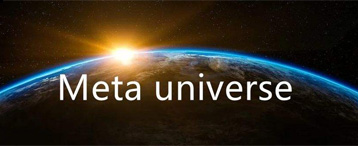-
Blockchain is changing how media and entertainment companies compete
 linkweb3
linkweb3 2023-02-06
2023-02-06 3382
3382 Tech
Tech
-
Summary:Blockchain is changing how media and entertainment companies compete. There are some new business models in the media and entertainment industry.
Although blockchain technology was originally an innovative digital currency tool in the financial field, various companies are currently experimenting with the core functions of its decentralization and security category, so as to manage digital assets more directly and reintegrate them to be in. Competition in the market. There are some new business models in the media and entertainment industry. This article will discuss the changes in blockchain technology in the media and entertainment.
Blockchain technology in the media and entertainment
With the application of blockchain in the media advertising and entertainment market, this industry design may change completely. Blockchain technology permits bypassed the relationship between content polymer, platform provider and sovereignty. Therefore, the market dominance is transferred to the hands of the copyright owner.
The advantages of blockchain in the media advertising and entertainment market may expand. It provides insight into key industries for various existing business models to meet their growing needs, which leads to market forces transfer. The blockchain eliminates the risk of digital fraud. The solution reduced transaction costs and management costs by 40-80%. Blockchain technology further improves transparency through automatic sovereign installment payment and confirmation of computerized inventory network members. The blockchain in the media advertising and entertainment market has added accountability. Similarly, the blockchain leads to safe and faster transactions, thereby promoting market growth.
Blockchain provides notable advertising transparency, and better understands how media content attracts consumers. For example, the blockchain allows the initiator to understand the amount enjoyed by everyone (including advertising technology companies and direct distributors) in the media store network.
Globally, the blockchain contains data about the current and future industry models and development design in the media, advertising and entertainment market reports. Just like it provides business processes, it helps partners to make wise judgments. Help to ensure the interest of interests exceeding the standard year.
Why is the global blockchain in the media important?
Many people want to know the importance of blockchain in the media advertisement and entertainment market. This is all information about the importance of the blockchain you need to understand. We all know the fact that the business is running on the data. The faster it gets, the more accurate, the better. The blockchain is very suitable for transmission of these data because it provides fast, shared and direct data on an unchanged record. These data can only be accessed by network users who have obtained permission. The blockchain in the media advertising and entertainment markets and organizations can follow orders, installment payment, records, creation, etc. In addition, because everyone has a unique view of reality, you can see all the subtle things of communication from beginning to end to give you more certainty, just like new efficiency and open door.
Blockchain technology media and entertainment applications
Through reliable blockchain application development services, blockchain technology can change some business areas in the media and entertainment fields, especially those members can benefit from the security and simplicity provided by the blockchain, such as installment Payment, financing, adaptation, and dissemination of agreement execution.
After the content producers put the media on a member -based paid wall, they may give up the income from buyers who are willing to pay for some members. However, they may make lower costs, such as a separate article, a marathon or a online program.
The importance of blockchain technology in media advertising and entertainment market
If we study the importance of blockchain in the media advertising and entertainment market, we will know it is of great significance. Let's discuss why:
Eliminate intermediaries
Blockchain innovation can continue to use through the elimination of intermediaries and estimates the estimation of resources with permanent state and digital identity, so that market media users, content producers and media organizations benefit.
Media security and speed
The concept of blockchain technology allows creators to accurately and securely track the development of the content promoted by the blockchain through verification, payment of users, and decomposition distribution design because of its simplicity. Compared with DRM programming, the blockchain is safe, so it is almost difficult to "crack" information to spread it unscrupulously, and to prevent the theft of content from the source along these ideas. The demand for intermediaries between content producers and end users has continued to expand, its interest in security and fast exchange is growing, and the continuous development of data piracy in the media and entertainment is a key factor in promoting market development.
How does blockchain promote the growth of advertising and media markets?
The blockchain affects all aspects of the business, including the display office. Blockchain can achieve the key goals displayed, such as cracking down extorting and establishing memories. Blockchain tends to meet customers' requirements for simple and information security.
The research scope of the blockchain in the media advertising and entertainment market includes: the blockchain contains important manufacturers, the development story of the rising show, and the important business part of the blockchain in the media advertising and entertainment market. It has long -term consideration and research goals. Market progress can be attributed to the creation of income to eliminate the middlemen between end customers and content producers.
Similarly, as Essezhe pointed out, 55% of the media and stage supervisors believe that blockchain is the main thing they need. Similarly, 83% of leaders intend to increase their interest in blockchain in the next three years. Due to the inevitable robbery of the commercialization of content and the inevitable robbery (IP), the demand for blockchain in the media and entertainment is expanding.
Of course, we can understand how the blockchain in media advertising and entertainment has become the leading part of market growth, such as in the Middle East. You can even have a firm understanding of the company's blockchain transaction express maps in the media advertisement and entertainment. Each advertising company should create customized blockchain solutions with blockchain development companies or blockchain technology cooperation experts. Various reports have learned from the serious status quo of some major members of the global blockchain in the media, propaganda and entertainment markets, including the organizational overview network services of Microsoft, SAP SE, IBM, Oracle Corporation, Essezhe, and Amazon. And many others.
Five major blockchain examples in the media and entertainment fields
1. Simplified version tax payment
In 2018, Citi Group reviewed the unfair profit distribution of the American music industry. Although the expenditure hit a record high of nearly $ 43 billion, the artist only received 12%of the profit (about 5 billion US dollars). Why? Due to unnecessary intermediary agencies cut income at once.
It turns out that the blockchain is a perfect solution to simplify and achieve more accurate tax payment by deploying smart contracts that meet the predetermined conditions, such as paying the correct recipient when playing music. This allows the establishment of a more fair and effective system to reward the work of the artist appropriately.
2. Small payment and use -based payment model
With the changes in media and entertainment consumption habits, the industry has to subvert it to maintain the audience's attention. Recent Deloitte research also found that the popularity of COVID-19 further affected the way we consume content. Although consumers start to add and trial services, the subscription of paid streaming services has increased, but they are now canceling the subscription. This has made a market with extremely competitive competition, and consumers require their time and money to get the best value.
It is both friendly and efficient for consumers. Blockchain media use cases (such as small payment and consumer models based) allow consumers to pay for what they want. Create a win -win situation. Consumers can access a small amount of low -value content they are looking for, and the content creators will automatically get paid without losing most of their profits to intermediary agencies. In addition, subscribers can attract users who may not want to promise regular subscriptions but are more willing to make one -time personal payment.
3. Unchanged advertising participation indicators
Advertising fraud made the industry alarmingly pay for $ 23 billion in 2019 due to robotic traffic, invalid traffic, and hidden advertisements, which are constantly exhausted the funds of advertisers, resulting in low return on investment and user experience. Fortunately, the blockchain in the media and advertising markets provides unchanged indicators, allowing agents, advertisers and customers to truly track and attribute advertising indicators, so they can clearly see how their budget is The cost, and where it produces a real click.
In fact, from clicks and impression to potential customers, the use of blockchain as shared classification accounts and universal real sources can ensure that data is not manipulated and fraudulent. Therefore, the blockchain is helping all stakeholders to rebuild trust; and advertisers formulate targeted advertising expenditures that can accurately describe their return on investment.
4. Delays
In terms of digital content, the market -based market is eliminating content aggregation and allows consumers and creators to interact without expensive intermediaries. And it's not time. The media and entertainment industries are largely complicated to a large extent. From streaming platforms to multiple intermediaries of content aggregates, they have diluted the income of all relevant personnel.
Due to the application of smart contracts, settlement is becoming more and more automated, and the consensus mechanism is verifying the data and all content from content view to the version tax payment to generate transparent and immutable audit tracking. This means that the industry no longer needs to rely on expensive intermediaries such as collecting agencies, and it can simplify the process and save a lot of costs.
5. Fraud and piracy prevention
Cointelegraph found that piracy in the media and entertainment industry may reach 52 billion US dollars by 2022. A large number of pirated copies brought huge losses to worldwide content creators and artists. For examples of blockchain used to prevent piracy from appearing, although the complexity of the problem is still in the initial stage.
The reason why piracy is so difficult to fight is because there is no sufficient evidence to understand the reason behind it. According to the Create of the copyright research institution, these may vary from cultural norms or cannot be accessed. Even the deep -rooted cultural beliefs believe that the content is worthless.
However, the blockchain has been applied through different measures, from promoting content monitoring to implementation of evidence collection watermark technology. As we understand the motivation behind piracy, the blockchain may begin to become a key tool for reducing the frequency of piracy.
Challenges of the media and entertainment industry
New technologies like NFT will "bring more digital product innovation, provide greater power for their creators, and fully achieve the grand goal of blockchain, cryptocurrency and decentralized networks."
As streaming media become more and more common and continue to split in various channels. When the centralized erosion has eroded the power (and profitability) of the gatekeepers, a new digital economy has emerged.
Challenges related to the next digital transformation include privacy, ownership, pricing, and identity -all these will directly affect the media industry.
Blockchain in TV
Blockchain technology can review digital assets and remove it before the news of false videos. Consumers can choose the channel they want and pay for the content they consume. NFT can create exclusiveness in the streaming world. In this world, everything is available at any time.
Blockchain in movie distribution
The actor hopes to get compensation based on the film's (verified) influence. A studio wants to accurately pricing the location of advertising or products. The creator hopes to control the access and ownership of the work. Identity, ownership, and copyright challenges can be helped through the blockchain.
Blockchain in music
NAPSTER's legacy has continued to this day, and the entire industry must adapt to the entire industry. However, the challenges in payment, flow tracking and payment distribution still exist. Smart contracts, NFT, and small payment may cure the problem of the industry.
The future of the media and entertainment
The development of the entertainment industry in the past few decades is remarkable. However, the problem in the industry has always been the dominant position of a small number of content production companies and music recording giants, and most people have been refused to pay the conference fee. The increase in digital content consumption and the rise of streaming media service platforms have changed many scenarios. However, issues related to the distribution of fair income and piracy are still a big problem that needs to be solved in the room. Challenging reduces the profit share of the artist's right to obtain. The use of blockchain technology and the accelerated development of blockchain solutions can provide urgently needed remedial measures for problems that plague the department. More and more entertainment and media companies' large -scale adoption can encourage the industry to develop in a fair, transparent and better direction. At the same time, it can also propose practical steps to change our way of using the media and consumption content.
Although the blockchain has a variety of advantages, such as the decentralized structure of the blockchain allows the content producer (such as artists and reporters) to spread their works directly to the buyers, bypass the traditional communication channels and will have a larger proportion of a larger proportion The income is left to the content producer, on the other hand, it also faces various challenges.
Disclaimer:As an open information publishing platform, shilian only represents the author's personal views and has nothing to do with shilian. If the article, picture, audio or video contains infringement, violation or other inappropriate remarks, please provide relevant materials and send it to: 2785592653@qq.com.
Hint:The information provided on this site does not represent any investment suggestion. Investment is risky, and you must be cautious when entering the market.
ShilianFan group:Provide the latest hot news, airdrop candy, red envelopes and other benefits, WeChat: rtt4322.
















